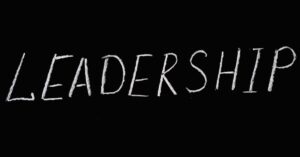Personal objectives are the foundational milestones that chart the course of your self-improvement and success journey. They are not just targets but guiding lights that provide direction, helping you navigate the complexities of life with clarity and purpose. By setting clear and achievable goals, you create a roadmap for both your personal and professional life, ensuring that each step you take is deliberate and aligned with your overarching vision.
The Role of Personal Objectives in Self-Improvement
Personal objectives play a crucial role in your self-improvement journey. They are the compass that keeps you oriented towards growth. Setting objectives helps you identify areas that need development and craft a plan to address them. This process of identification and action is vital for continuous self-improvement, as it ensures that you are always progressing towards your ideal self.
How Objectives Foster Motivation and Persistence
Objectives are powerful motivators. They provide a sense of purpose and urgency, which can be incredibly energizing. When you have a clear goal in mind, it’s easier to push through obstacles and stay committed, even when the going gets tough. This motivation is essential for maintaining momentum and ensuring that you persist in your efforts, no matter the challenges that arise.
Measuring Success Through Personal Objectives
One of the significant benefits of setting personal objectives is the ability to measure success. Objectives provide tangible benchmarks that you can use to assess your progress. By regularly reviewing these benchmarks, you can celebrate your achievements, identify areas for improvement, and adjust your strategies to ensure continued growth and success.
Why Set Personal Objectives?
Setting personal objectives can profoundly transform your life. They serve as a blueprint for success and fulfillment, helping you navigate life’s complexities with confidence and purpose. Here are a few reasons why personal objectives are essential:

Achieving Clarity and Focus
Personal objectives help you achieve clarity about what you truly want. By defining specific goals, you can eliminate distractions and concentrate your efforts on what matters most. This focus is vital for effective time management and resource allocation, ensuring that you are always working towards your most important priorities.
Boosting Motivation and Inspiration
Well-defined goals are powerful motivators. They provide a sense of direction and purpose that can inspire you to take action, even in the face of adversity. When you have a clear vision of what you want to achieve, it’s easier to stay motivated and maintain the enthusiasm needed to overcome obstacles and reach your objectives.
Enhancing Accountability and Responsibility
Personal objectives enhance accountability by providing a framework for evaluating your actions and decisions. When you set clear goals, you are more likely to take responsibility for your progress and outcomes. This accountability fosters a sense of ownership over your life, encouraging you to make choices that align with your values and aspirations.
Encouraging Continuous Growth and Development
Goals are catalysts for growth. They challenge you to step out of your comfort zone and strive for new achievements. By setting and pursuing personal objectives, you engage in a process of continuous learning and development, expanding your skills and knowledge and ultimately reaching new heights of personal and professional success.
Types of Personal Objectives
Personal objectives can vary widely depending on your individual needs and aspirations. Understanding the different types of goals you can set is crucial for crafting a comprehensive and balanced growth strategy. Here are some examples of the various types of personal objectives:

Short-Term Goals: Building Momentum
Short-term goals are the stepping stones that create momentum in your growth journey. They are objectives that you aim to achieve in the near future, typically within a few days to a few months. These goals are instrumental in providing quick wins and fostering a sense of accomplishment, which can be incredibly motivating.
Examples of Short-Term Goals
Short-term goals can range from completing a specific project to developing a new habit. For instance, you might aim to finish a professional course, establish a consistent exercise routine, or start a daily journaling habit to enhance self-reflection and emotional awareness. These small, achievable targets help you build confidence and lay the foundation for more significant achievements.
The Importance of Short-Term Goals in Long-Term Success
While short-term goals are immediate, they play a crucial role in achieving long-term success. They break down larger objectives into manageable tasks, making it easier to maintain progress and avoid feeling overwhelmed. By achieving these smaller goals, you build the skills and habits necessary for tackling more substantial challenges.
Strategies for Setting Effective Short-Term Goals
To set effective short-term goals, ensure they are specific, realistic, and aligned with your long-term objectives. Break them down into actionable steps and set deadlines to maintain urgency. Regularly review and adjust your goals to stay on track and maximize your chances of success.
Long-Term Goals: Sustained Effort for Significant Change
Long-term goals are the objectives that require sustained effort over an extended period, often a year or more. These goals are typically aligned with your broader life aspirations and require a strategic approach to achieve.
Examples of Long-Term Goals
Examples of long-term goals might include building a successful business, achieving financial independence, or pursuing a major career change. These objectives demand dedication and perseverance, as they often involve significant personal and professional development.
Aligning Long-Term Goals with Life Aspirations
For long-term goals to be effective, they must align with your core values and life aspirations. This alignment ensures that your efforts are focused on what truly matters to you, providing the motivation needed to maintain momentum over the long haul.
Overcoming Challenges in Long-Term Goal Pursuit
Pursuing long-term goals can be challenging, as they often involve setbacks and require sustained effort. To overcome these challenges, maintain flexibility, celebrate small victories, and regularly reassess your progress and strategies. This adaptability will help you stay motivated and ensure that you remain on track to achieve your objectives.
Daily Goals for Self-Improvement: Cultivating Positive Habits
Daily goals are the small, actionable tasks that you commit to doing every day. They are essential for building positive habits and making consistent progress towards your larger objectives.
Examples of Daily Goals
Examples of daily goals include reading for 30 minutes, practicing gratitude, or meditating for a short period each day. These activities contribute to your overall well-being and help you establish routines that support your long-term objectives.
The Role of Daily Goals in Habit Formation
Daily goals are crucial for habit formation, as they involve repeated actions that eventually become automatic. By consistently engaging in positive behaviors, you reinforce the habits that contribute to your growth and success.
Strategies for Maintaining Consistency with Daily Goals
To maintain consistency with daily goals, integrate them into your existing routines and set reminders to keep them top of mind. Track your progress and celebrate small milestones to stay motivated and committed to your daily practices.
How to Set Effective Personal Objectives
Setting personal objectives is more than just jotting down what you want to achieve; it requires careful planning and thoughtful consideration. Here’s a step-by-step guide to help you set effective goals:

1. Reflect on Your Values and Priorities
Before setting any goals, take time to reflect on your core values and priorities. Understanding what truly matters to you is crucial for setting meaningful objectives that inspire and motivate.
Identifying Core Values
Begin by identifying your core values. These are the principles and beliefs that guide your decisions and actions. Consider what is most important to you, such as family, career, health, or personal growth, and use these values as a foundation for setting your goals.
Aligning Objectives with Values
Once you have identified your core values, ensure that your objectives align with them. This alignment will ensure that your goals are meaningful and motivating, providing the drive needed to pursue them with passion and dedication.
Prioritizing Goals Based on Values
With a clear understanding of your values, prioritize your goals based on their alignment with these principles. Focus on objectives that have the most significant impact on your life and contribute to your overall sense of fulfillment and satisfaction.
2. Make Your Goals SMART
The SMART framework is a powerful tool for setting effective goals. Ensure that your objectives are:
Specific: Defining Clear Objectives
Clearly define what you want to achieve. Specific goals leave no room for ambiguity, making it easier to focus your efforts and measure success.
Measurable: Tracking Progress and Success
Establish criteria for tracking progress and success. Measurable goals provide tangible benchmarks that allow you to assess your progress and make necessary adjustments.
Achievable: Setting Realistic Challenges
Set realistic goals that challenge you but are within reach. Achievable objectives ensure that you remain motivated and avoid the frustration of setting unattainable targets.
Relevant: Aligning with Values and Aspirations
Align your goals with your values and long-term aspirations. Relevant objectives ensure that your efforts are focused on what truly matters, providing the motivation needed to maintain momentum.
Time-Bound: Creating Urgency and Commitment
Set deadlines to create a sense of urgency and commitment. Time-bound goals provide a clear timeline for achieving your objectives, ensuring that you stay focused and on track.
Ready to Transform Your Goals into Reality? ✨
Join thousands of achievers who’ve already created their success roadmap
Free tool • Takes only 3 minutes
3. Break Down Goals into Actionable Steps
Once you’ve set your goals, break them down into smaller, manageable tasks. This approach will make your objectives less overwhelming and help you make steady progress.
Creating a Step-by-Step Action Plan
Develop a step-by-step action plan for achieving your goals. Outline each task and assign deadlines to maintain focus and momentum.
Staying Organized and Focused
Use tools such as calendars, to-do lists, or project management software to stay organized and focused on your objectives. Regularly review your plan and adjust as needed to ensure continued progress.
Overcoming Obstacles and Staying Motivated
Anticipate potential obstacles and develop strategies for overcoming them. Stay motivated by celebrating small victories and maintaining a positive mindset.
4. Monitor Progress and Adjust
Regularly review your progress and adjust your plans as needed. Flexibility is key to staying on track and maintaining motivation.
Tracking and Reviewing Progress
Track your progress regularly to assess your performance and identify areas for improvement. Use tools such as journals or digital trackers to record your achievements and setbacks.
Celebrating Milestones and Achievements
Celebrate milestones and achievements along the way. Recognizing your progress reinforces your motivation and encourages continued effort towards your goals.
Learning from Setbacks and Adjusting Plans
Learn from setbacks and adjust your plans as needed. Use failures as opportunities for growth and refinement, ensuring that you remain adaptable and resilient in your pursuit of success.
Real-World Examples of Personal Objectives
To illustrate how personal objectives can be applied in real life, here are a few examples of individuals from different walks of life setting and achieving their goals:
Aspiring Entrepreneur: Launching a New Product
An aspiring entrepreneur might set a goal to launch a new product within six months. This objective would involve conducting market research, creating a prototype, and developing a comprehensive marketing strategy. By breaking down the goal into actionable steps and maintaining focus, the entrepreneur can successfully bring their product to market and achieve their business aspirations.
Mid-Career Professional: Securing a Promotion
A mid-career professional may aim to secure a promotion within a year. To achieve this goal, they might enhance their skills through online courses, network with industry leaders, and seek feedback from their supervisor. By setting clear objectives and pursuing them with dedication, the professional can advance their career and achieve greater satisfaction and fulfillment.
Self-Improvement Enthusiast: Enhancing Mental Well-Being
A self-improvement enthusiast might commit to improving their mental well-being by practicing mindfulness, attending therapy sessions, and engaging in creative hobbies. By setting daily and long-term goals, they can cultivate positive habits and make consistent progress towards a healthier and more fulfilling life.
Transform Your Career with Professional Certification
Conclusion
Setting effective personal objectives is a powerful way to drive growth and achieve success in your personal and professional life. By understanding the importance of goals, exploring different types, and following a structured approach, you can create a clear path towards your aspirations. Remember, the journey to self-improvement is continuous, and every step you take brings you closer to realizing your full potential. So, start setting your personal objectives today and embark on a fulfilling journey of growth and achievement.
📱 TAKE ACTION: Level Up Your Goal-Setting Game!
Ready to transform your objectives into achievements? Check out these top-rated tools for 2025:
✨ For Visual Planners:
- ClickUp – Best all-in-one goal tracking with progress roll-ups
- Trello – Perfect for visual goal mapping and milestone tracking
- Notion – Highly customizable for personal goal frameworks
🎯 For Personal Development:
- GoalsOnTrack – Comprehensive progress tracking with vision boards
- Strides – Flexible goal and habit tracking
- Habitica – Gamified goal-setting experience
⚡ Quick Start Resources:
→ Download our free goal-setting template – Goal_Setting_Template_BestOfMotivation
Start Your Growth Journey Today!












